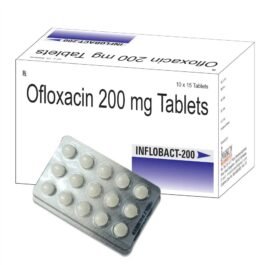STARCLOX-CL Capsule
Double Strength against Multiple Trouble
COMPOSITION: Amoxycillin Trihydrate IP 250 mg + Cloxacillin Sodium IP 250 mg + Lactic acid bacillus spores 1.7 million spores
Indication :
- upper & lower RTI
- Metritis/Nephritis/Vaginitis
- Post Surical infection
- Skin & Soft Tissue infection
Description
COMPOSITION: Amoxycillin Trihydrate IP 250 mg + Cloxacillin Sodium IP 250 mg + Lactic acid bacillus spores 1.7 million spores
Amoxicillin trihydrate (a-amino-hydroxybenzyl – penicillin)
- It is an acid stable, semi-synthetic drug belonging to a class of antibiotics called the Penicillins (β ‐lactam antibiotics).
- It is shown to be effective against a wide range of infections caused by a wide range of Gram‐positive and Gram‐ negative bacteria in both human and animals.
- Widely used in a standard eradication treatment of gastric H. pylori infection combined with a second antibiotic and an acid suppressing agent.
- The antibacterial activity of amoxycillin and its favourable absorption and excretion characteristics are also reflected in animal studies, and amoxycillin is superior to ampicillin in the treatment of experimental infections (Acred et al., 1971).
Cloxacillin Sodium (Penicillin antibiotic)
- Cloxacillin is in the penicillin family of medications, an antibiotic useful for the treatment of several bacterial infections.
- Cloxacillin sodium is acid-resistant and enzyme-resistant isoxazole antibiotic, has strong antibacterial activity, can inhibit the synthesis of cell walls, and has a high oral absorption rate and high protein binding rate of up to 98%.
- It is semi-synthetic penicillin, has acid resistance and penicillinase resistance, has antibacterial activity against gram-positive coccus and neisseria, and has stronger antibacterial activity against staphylococcus enzyme-producing strains than oxacillin.
- Can also be used for treating mixed infections caused by Streptococcus pyogenes or Streptococcus pneumoniae and penicillin-resistant staphylococcus.
Lactic acid bacillus spores
- LAB strains demonstrated major antimicrobial activity against all the uropathogens.
- LAB can be used as candidates to develop the probiotic microorganisms that inhibit uropathogens in children, and are expected to be applied to the treatment and prevention of pediatric urinary tract infections.
- Lactic acid bacteria exert bacteriostatic effects by interfering with pathogen cell membrane functions, leading to membrane permeability, loss of cell contents, lysis, and death





